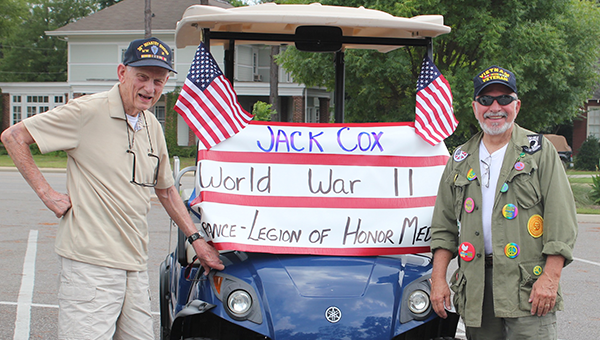Justice only served when it is just
Published 12:00 am Saturday, April 18, 2015
Martin Richards was a happy 8-year-old, cheering on runners in the Boston Marathon two years ago when a bomb exploded, ending his life.
Martin’s little sister, Jane, then 7, lost a leg. His mother was blinded in one eye. His father took burning shrapnel in his legs, and his eardrums were perforated. Martin’s older brother, Henry, then 9, witnessed the gruesome scene.
So it was shocking to many when Martin Richards’ parents asked prosecutors not to pursue the death penalty for Dzhokhar Tsarnaev, recently convicted of 30 counts against him in connection with the bombing, which killed three people and wounded 264.
“We are in favor of and would support the Department of Justice in taking the death penalty off the table in exchange for the defendant spending the rest of his life in prison without any possibility of release and waiving all of his rights to appeal,” they wrote.
Their convincing argument was not in opposition to the death penalty, per se, but against what the death penalty would mean for them: endless appeals forcing them to relive the tragedy over and over.
When prosecutors put Mr. Richards on the stand in the first phase of the trial, they had the medical examiner describe in detail what the bomb did to the Richards’ youngest son. They even showed the jury the burned clothes the 8-year-old was wearing that day.
Surely, the Richards have suffered a horror no parent should ever face – watching the violent death of a child, not to mention living every day of the rest of their lives with personal, physical reminders.
To give Tasarnaev the death penalty would be cruel and unusual punishment for the Richards family, forcing them and the 260 other victims to revisit the carnage of that day over and over again.
When I read about the Richards family this week, I couldn’t help thinking of other cases. The Richard family’s reaction was not unlike the reaction of my friend Debra, whose father was murdered right here in Covington County. She didn’t want the state to seek the death penalty.
“What good would it do,” she pondered. She didn’t want to spend the rest of her life attending appeals hearings.
And it was not totally foreign to the position my own father took when a higher court found that a man who killed one of his closest friends, and intended also to kill him, had been unjustly sentenced to the death penalty, and was eventually resentenced to life in prison.
“If I thought it would bring my friend back to his children and grandchildren, I’d flip the switch myself,” he wrote.
Just Thursday, a man who had been on death row in Alabama for more than 15 years was freed in a plea deal in which he plead guilty to aiding and abetting murder, and walked free for time served. He won a new trial after a judge documented numerous errors and abuses in his first trial, and indicated there was serious doubt about his guilt. Prosecutors were preparing for a retrial when the plea deal was reach.
Mobile County Circuit Judge Sarah Stewart advised the man that he should recognized God’s grace, and resist the temptation to be bitter.
From the bench, Judge Stewart expressed sympathy to the victim’s family.
“I realize that you may leave here today feeling justice was not served,” she said. “But I want you to understand that justice is only served when it is just.”
I wonder, sometimes, when we demand our pound of flesh, if we are truly delivering justice to victims.
Surely, forcing the Richards family to relive their trauma one split second more than they have to would not be the just thing to do. Surely, the same must also be true for other victims.



